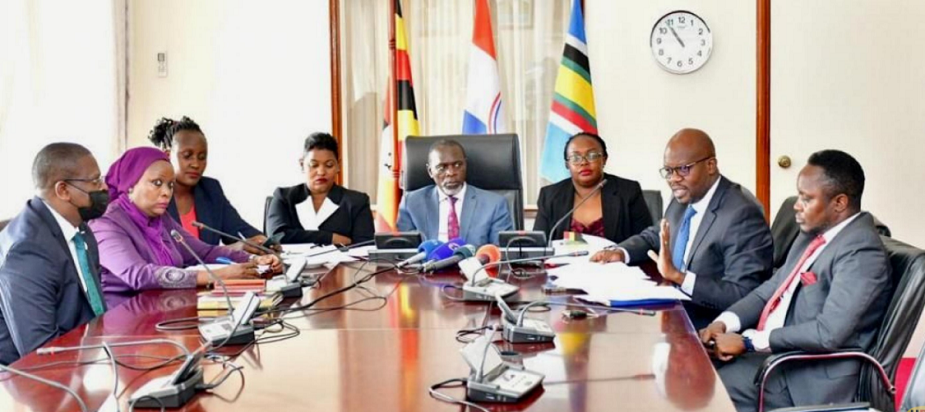President Yoweri Museveni has written to the Speaker of Parliament Rebecca Kadaga, informing Parliament why he declined to assent to the Minimum Wage Bill.
Museveni informed Kadaga and Parliament that there are no gaps in the current law to warrant a new legislation.
Museveni’s position was communicated by Kadaga to MPs during yesterday’s plenary sitting.
Museveni said his position not to append his signature to the bill followed advice from Attorney General, William Byaruhanga who advised the President not to sign the law but wait for a study being carried out by a Committee that was established by the Ministry of Gender, Labour and Social Development before Cabinet can make an informed decision on the minimum wage Ugandans should receive.
In his 21st August 2019 letter by the President to the Speaker, notifying her of his refusal to ascent to the Bill, Museveni said: “I have received the Minimum Wage Bill for assent, having received advice from the Attorney General, I hereby refuse to ascent to the Bill for the following reasons; there are no gaps in the minimum advisory boards that the bill seeks to cure.”
He added: “The current law is adequate and enforceable. Cabinet directed the Ministry of Gender on minimum wage from the council, cabinet still awaits report from the ministry so that it makes an informed decision. This is a unique situation where he indicates areas he wants us to change, but it’s a total rejection the bill. I direct the member responsible for this bill so that we take decision as a house on the entire bill.”
It should be noted that the Minimum Wage Bill 2015 was tabled on the floor of Parliament on 24th December 2015, by Arinaitwe Rwakajara (Workers MP) on grounds that Uganda had no minimum wage and although attempts had been made in the past to establish one, the efforts had gone without much success.
Rwakajara said that the major defect in the current minimum wage determination mechanism as provided for under the Minimum Wages Advisory Board Act doesn’t provide for an employee-employer led minimum Wages determination, a sectoral based minimum wage determination and application and is in dire need of amendment since it has been in existence since 1957.
The laws provides for the creation of a board whose duty will entail consulting with various parties and make be recommendations on minimum rates of wages for all classes of workers, recommending terms of employment in the various sectors of the economy, carry out periodical revision of minimum wages fixed by the board and advising the minister on policy issues concerning employee working conditions and terms of employment.
Section 15 (2) the legislation stipulates the punishment; If an employer pays an employee to whom a wages regulation order applies remuneration less than the statutory minimum remuneration, or fails to observe any of the conditions of employment prescribed in the order, he or she commits an offence and is liable on conviction to a fine not exceeding five hundred currency points for each offence or imprisonment for a term not exceeding three years or both.
Although the close was welcomed by workers, it didn’t receive the same reception from employees who said signing of the bill into law would distort the economy and it isn’t surprising that the President who has been on forefront to protect ‘investors’ adhered to investors’ cried and declined to sign the bill.
However, the revelation angered lawmakers led by Kasiano Wadri (Arua Municipality) who questioned why the Attorney General didn’t give the same advice to Parliament at the time of processing the bill, only to dish the same advice to the President.
Kasiano said, “In the letter that you have just written coming from the President, he says he has rejected to ascent to the bill on the advice of the Attorney General. The Attorney General is a member of this house why did he deny us his technical advice at the time when this law was considered? And that would have been the time, but if he is supposed to be the legal advisor of government and he isn’t here to give us that technical advice and he waits until parliament has done its work and the President says on the advice of the Attorney General, isn’t he doing us a disservice?”
Speaker concurred with Wadri arguing, “Definitely he is; because he is supposed to be here to guide.”





